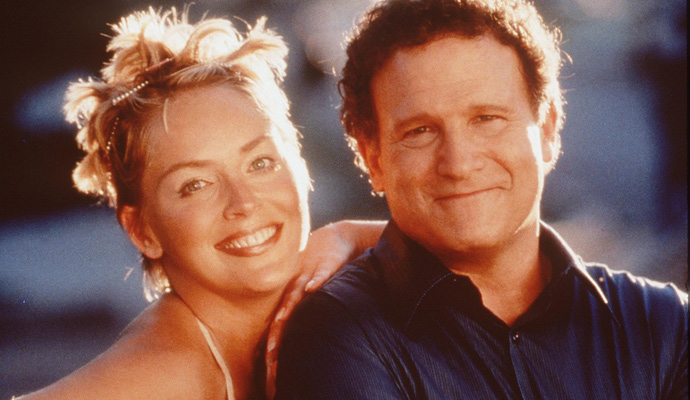4 reasons you shouldn't care who wins the Golden Globes
You should definitely watch the Golden Globes this Sunday. Just don't take it seriously.


A free daily email with the biggest news stories of the day – and the best features from TheWeek.com
You are now subscribed
Your newsletter sign-up was successful
Before I launch into everything I hate about the Golden Globes, let me be clear: You should totally watch the Golden Globes. For one thing, the celebrities will be drunk. Who knows what they'll do? If you're into fashion, there will be loads of suits and dresses to tweet about. And honestly, you'd be insane not to tune in anytime Tina Fey and Amy Poehler are sharing the screen.
But while you watch, keep one thing in mind: You should not be even remotely invested in the outcome of the ceremony, because the Golden Globes are arbitrary and meaningless. I know, I know — all awards shows are arbitrary and meaningless. But if the Oscars and the Emmys should be approached with healthy skepticism, the Golden Globes should be met with a snort and an eye roll. This is why:
1. The voting bloc is tiny
The Week
Escape your echo chamber. Get the facts behind the news, plus analysis from multiple perspectives.

Sign up for The Week's Free Newsletters
From our morning news briefing to a weekly Good News Newsletter, get the best of The Week delivered directly to your inbox.
From our morning news briefing to a weekly Good News Newsletter, get the best of The Week delivered directly to your inbox.
The Academy of Motion Pictures Arts and Sciences, which awards the Oscars every year, has more than 6,000 members. The Academy of Television Arts and Sciences, which awards the Emmys, has more than 18,000 members. The Screen Actors Guild allows each of its 165,000-plus active members to vote in its annual SAG Awards.
And then there's the Hollywood Foreign Press Association, which hands out the Golden Globes every year. The HFPA's own website says they have "about 90 members." (Apparently they couldn't be bothered to do the math, so I counted myself; it's actually 88.)
From there, it's a matter of basic arithmetic: With such a minuscule voting bloc, every vote counts for much, much more, which means that every HFPA member has a dramatically higher chance of swinging an entire category toward his or her own idiosyncratic tastes. I'm not saying any of the other awards ceremonies are perfect, but they're certainly more democratic.
But for now, let's make the generous assumption that even with such a tiny group of voters, the HFPA still gets it right most of the time. We wouldn't be out of the woods, because:
A free daily email with the biggest news stories of the day – and the best features from TheWeek.com
2. Their credentials are questionable
A quick review of what it takes to become an HFPA member raises a few troubling questions. For one, every applicant must be sponsored by two people who are already members of the HFPA — a requirement that reeks of the kind of nepotism that tends to kill any serious critical dissent. Two: Once you're in, the minimum requirement for continued HFPA membership is just four published articles per year — a number that's absurdly low for any "journalist" whose full-time job is covering film and television.
But for the sake of argument, let's say that every HFPA voter takes his or her job more seriously than that. Let's assume that all 88 members publish dozens of stories a year, and make an earnest effort to see as many films and TV shows as they can, in order to ensure that their votes are as well-informed as possible. Unfortunately, we'd still have a problem, because:
3. Their motives are sketchy

Let's run down a few highlights from the HFPA's illustrious past. In 1999, The Muse star Sharon Stone sent every HFPA member a Coach watch valued somewhere between $295 and $395. When word got out, then-HFPA President Helmut Voss ordered members to return them. "The watch was way, way, way beyond the edge of the envelope as far as promotional considerations, like T-shirts," said Voss at the time. "We were touched by her generosity, but this is definitely a no-no for a group like ours that wants to protect the integrity of its award." In the end, Stone blamed USA Films, USA Films blamed Stone, and everybody eventually shrugged and moved on.
Why would anyone make such a mercenary attempt to sway the minds of HFPA voters? Maybe because it had worked before. In 1981, the HFPA awarded Pia Zadora Best New Star of the Year for her performance in Butterfly. The decision was puzzling for a few reasons. One: Butterfly was poorly received, and many critics had specifically singled out Zadora's performance as one of the film's biggest problems. Two: Butterfly hadn't even been released in the United States, so Americans had virtually no idea who she was anyway. Three: Zadora wasn't actually a "new star." She had made her film debut all the way back in 1964 as a child actress in Santa Claus Conquers the Martians.
How did it happen? As it turned out, Butterfly producer Meshulam Riklis — who happened to be Zadora's then-husband — invited HFPA members to a night out in Vegas, complete with a performance by Zadora. He also threw a lunch at his private residence that concluded with a special screening of Butterfly. Riklis claimed his actions had been within his rights under HFPA bylaws, complaining that "other people take the judges out to fancy restaurants" without being attacked for it. But the damage to each side's credibility was done; the HPFA discontinued the "New Star of the Year" awards just a year later, and Zadora's last film appearance was a small cameo in 1994's Naked Gun 33 1/3: The Final Insult.
But that was 1981, you might say. They sent the watches back. Their ethical standards must have improved. They wouldn't make the same mistake again, right? Let's talk about 2011, when many entertainment journalists were puzzled by a few left-field Golden Globe nominations. The Tourist, a bland Angelina Jolie/Johnny Depp "thriller," earned a surprise nod in the Best Musical or Comedy category. Even more bizarrely, Burlesque — a scathingly received musical starring Cher and Christina Aguilera — was nominated in the same category. What gives? As it turned out, the HFPA had been treated to a swanky night in Las Vegas — complete with a private performance from Burlesque star Cher — by Sony Pictures, which happened to distribute both The Tourist and Burlesque.
I know it's difficult, but let's pretend that the HFPA has somehow found a way to fix all of these glaring problems in just a few years. Let's say they're finally ready deliver an awards show whose ethical purity would make Pope Francis envious. Alas, the Golden Globes would still be far inferior to its fellow awards shows, because:
4. The categories make no sense

Let's go back to 2011, when The Tourist and Burlesque (and their fellow nominees Red and Alice in Wonderland) lost Best Musical or Comedy to The Kids Are All Right. The right movie actually won; but why were any of those movies competing against one another, anyway? What makes the song-free, laugh-free The Tourist a comedy/musical? Why was a dramedy like The Kids Are All Right competing as a comedy when The King's Speech — a movie with at least as many laughs — was competing as a drama?
This is not an isolated problem. Last year, Les Miserables — the dourest and draggiest drama released in 2012 by a wide margin — got to compete (and win) against The Best Exotic Marigold Hotel and Silver Linings Playbook because its characters sang. That same night Argo, which was substantially more comedic than the comedy category's winner (and most of its nominees), won Best Drama. It probably goes without saying that this year's "Musical or Comedy" nominees are similarly all over the map. (For the record: American Hustle, Her, Inside Llewyn Davis, Nebraska, and The Wolf of Wall Street. Feel free to rank their relative humor/musicality for yourself.)
Meanwhile, the HFPA continues to make other questionable decisions — like, say, barring Scarlett Johansson from contention for her voice-only performance in Her, or attempting to bar a Swedish documentary from the Best Foreign Language Film category.
***
With all these problems, you might ask, why does anyone bother to cover the Golden Globes? Because whether or not it should, winning a Golden Globe has a genuine impact on the industry. The PR boost from a Golden Globe win is free marketing, and studios are eager to capitalize. The knowledge that a film or TV show wins any award, no matter how dubious, can influence more legitimate awards further down the road, and drive audiences to seek it out. Mark my words: Starting next week, you're going to be slammed with ads pushing movies and TV shows as "Globe Globe winners" as if that means anything more than this: "A maximum 88 people I've never heard of voted for this, for reasons that will never be publicly revealed." Decide for yourself how much that endorsement means to you.
Scott Meslow is the entertainment editor for TheWeek.com. He has written about film and television at publications including The Atlantic, POLITICO Magazine, and Vulture.
-
 The ‘ravenous’ demand for Cornish minerals
The ‘ravenous’ demand for Cornish mineralsUnder the Radar Growing need for critical minerals to power tech has intensified ‘appetite’ for lithium, which could be a ‘huge boon’ for local economy
-
 Why are election experts taking Trump’s midterm threats seriously?
Why are election experts taking Trump’s midterm threats seriously?IN THE SPOTLIGHT As the president muses about polling place deployments and a centralized electoral system aimed at one-party control, lawmakers are taking this administration at its word
-
 ‘Restaurateurs have become millionaires’
‘Restaurateurs have become millionaires’Instant Opinion Opinion, comment and editorials of the day
